Despite dawn breaking on the digital economy, Vodafone claims only 24% of businesses globally could reasonably call themselves cyber ready, but those who are should prepare themselves for a cash boost.
September 27, 2018

Despite dawn breaking on the digital economy, Vodafone claims only 24% of businesses globally could reasonably call themselves cyber ready, but those who are should prepare themselves for a cash boost.
Releasing its Cyber Ready Barometer, a report to measure how firms are progressing towards the digital era, Vodafone states the average score for UK businesses in terms of cyber readiness is 46/100, with only 34% of businesses achieving ‘Advanced’ status. Those who are classed as ‘Cyber Ready’ scored 4.3/5 for reported stakeholder trust (customers, employees and regulators) while 47% reported annual revenue increasing by at least 5% in the last 12 months.
“From our perspective the biggest takeaway from the research was how few business are truly cyber ready and how many were not doing the basic controls,” said Vodafone Enterprise Cyber Security Lead Maureen Kaplan. “The need to protect organizations is absolutely critical but only one in four are actually proactive. That is worrying from a societal view point.”
One of the reasons for this could be a disconnect between the IT department and the employees within the business. While the IT department is searching for new ways to make the business digital ready, Kaplan worries whether right steps are being made and even if the department has a complete understanding of the business.
A good example of this is the growing mobility trend in the UK. On average, the IT department believes 43% of staff use their own device for work, while 63% of employees stated they do so. A significant proportion of those using smartphones or personal computers for work purposes could be deemed a threat to the organization.
With the UK government targeting digital as a means to ensure the economy remains competitive in the post-Brexit era, these statistics should be quite a worry. That said, perhaps a bigger concern is the security aspect of the piece.
Cyber ready isn’t simply a case of being capable of achieving new revenues, securing data, both customer and business, is just as critical. Aside from the impact this can have on relationships with customers, the financial penalties for not meeting the required standards are starting to ramp up very quickly. Interestingly enough, those who have been the victim of a data breach are generally deemed more cyber ready than those who haven’t.
That said, looking at the business case, Kaplan suggests the idea of being cyber ready and secure can be used as a differentiator. 34% of consumers said they are increasingly aware of security threats being discussed in the media, 70% consider themselves to be at risk of a cyber-attack or online threat, while 63% have stopped using at least one online service due to security concerns. 43% don’t trust the security of companies they still use.
When it comes to consumer adoption of the digital economy the trends do seem to be increasing despite these security concerns. The average consumer currently now uses nine different connected devices at home and eleven different online services, ranging from online banking to gaming and fitness trackers. Concern is highest about the security of mobiles devices (83%) and computers (82%), but newer devices like voice assistants (60%) and smart home controls (53%) are also a cause for concern. Financial data is naturally the biggest worry, though only 51% expressed concern about using social media and only 45% online dating services. These are less obvious threats, though personal information taken from these services can be used to build profiles on users to navigate around security protocols (security questions for example) or create fake accounts for authentication.
In terms of the business opportunity, 59% of the research’s respondents suggest they would be prepared to pay a premium for higher levels of security on the products and services which they use. This claim suggests there is a business case and revenues to be won through a greater focus on security, though only 29% of businesses see there are significant financial benefits from having higher levels of security. With 71% of businesses not recognising the opportunity, and 59% of consumers prepared to pay a premium for peace of mind, there is certainly money to be made through security.
While much of the world looks at security as a box ticking exercise, simply remaining compliant and avoiding hefty fines, that is not the message Vodafone; being secure can be a way to make money as well.
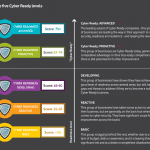
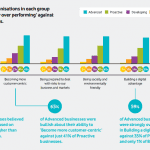
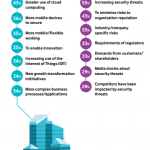
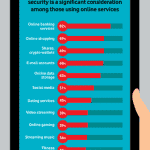
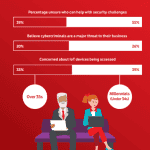
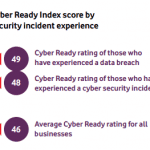
About the Author(s)
You May Also Like








.png?width=300&auto=webp&quality=80&disable=upscale)


_1.jpg?width=300&auto=webp&quality=80&disable=upscale)


.png?width=800&auto=webp&quality=80&disable=upscale)